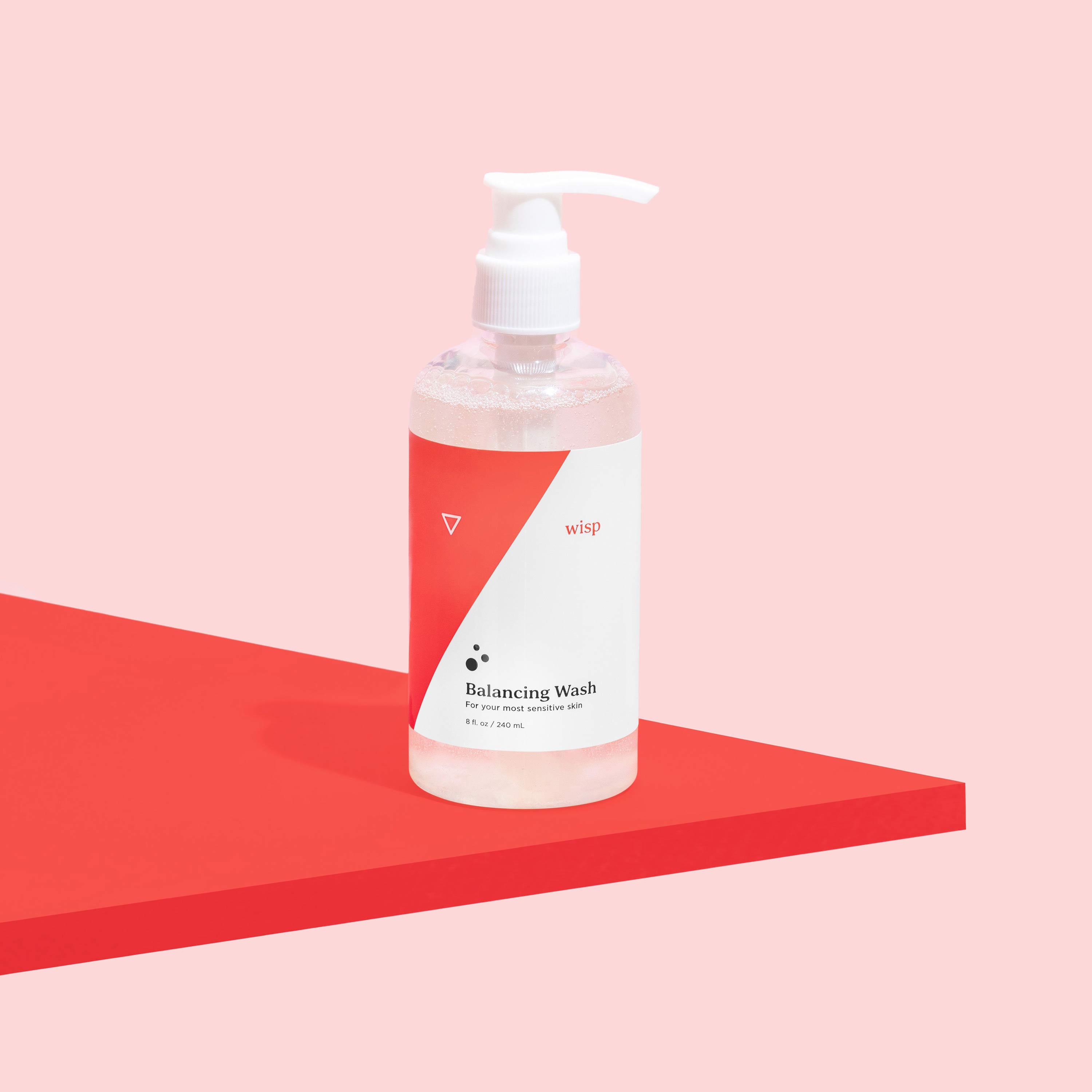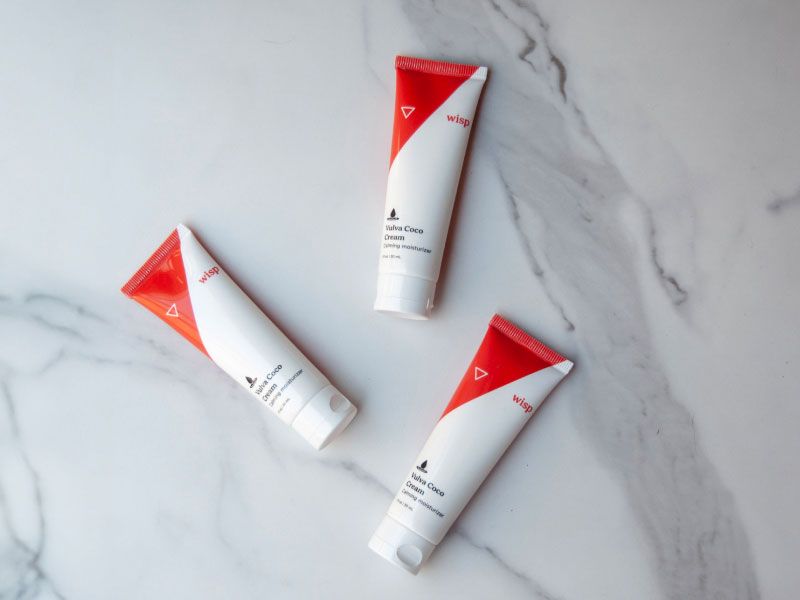
The Science Behind Deodorants
By Simona Byler
February 6, 2025
When it comes to the products you put on your face, it makes sense to have lots of expectations and be pretty picky. But, what about the products you put on the rest of your skin? It’s time to start caring for all your skin equally–even your underarms!
We all know that our armpits–and everywhere else that has skin-on-skin contact–can quickly get sweaty and smelly. Deodorant is the classic solution for underarm odor, but how much do you know about the deodorant you use? Let’s discuss some details about how deodorant works, antiperspirant vs. deodorant, and if a “best deodorant for women” really exists.
How does deodorant work?
You might have heard of the gut microbiome, and we talk a lot about the vaginal microbiome, but did you know that you have a skin microbiome, too? That’s right! Your skin is covered in all kinds of microscopic life, including helpful bacteria and fungi.
What does the skin microbiome have to do with deodorant? Well, those little bacteria are what make us smell. It’s commonly believed that sweat causes body odor. But, on its own, sweat is actually odorless! Sweat mixing with the bacteria on your skin is what causes odor, most notably in the armpits.
So, deodorant works by using antimicrobial ingredients to stop odor-causing bacteria from growing in the first place. Those antimicrobial ingredients are often paired with essential oils, perfumes, and other fragrances to help mask and absorb any sour odors that do develop. Deodorant doesn’t stop you from sweating altogether–that’s where antiperspirant comes in.
Antiperspirant vs. deodorant
It’s totally understandable to not love sweating, especially when it causes visible stains in the armpits (and crotches) of your clothes. But, love it or not, sweating is a super important physiological function used to regulate our body temperature. And since you have between two to four million eccrine sweat glands on your skin, sweating is inevitable!
That said, antiperspirant does its best to keep your armpits from sweating–something deodorant alone does not do. Antiperspirant works by forming a gel that plugs sweat pores and keeps sweat from making its way out of your skin. The most effective antiperspirant ingredients are aluminum salts.
So, even though the names are often used interchangeably, there are some key differences when comparing antiperspirant vs. deodorant!
- Antiperspirants: Antiperspirants can come in a few different forms. One common option reduces sweat by temporarily blocking sweat glands with aluminum-based compounds. Another option is topical glycopyrrolate, which works by blocking certain receptors in sweat glands, reducing overall sweat production, and decreasing sweat gland secretions. You might consider an antiperspirant if you experience heavy sweating.
- Deodorants: These don’t stop sweat but neutralize odor caused by bacteria breaking down sweat. Deodorants are great for managing smell while allowing your body to sweat naturally.

Vulva Coco Cream
Starting at $15
Keep your bikini line silky smooth with our all-natural, fragrance free intimate moisturizer.

Old Prescription Whole Body Deodorant
Starting at $132
Prescription & aluminum-free deodorant that can be used almost anywhere.

pH Balancing Feminine Wash
Starting at $14
A gentle cleanser for your most sensitive skin. No dyes or artificial fragrance.

Calm Down! Instant Itch Relief for BV & Yeast
$36
Prescription cream used to relieve uncomfortable symptoms of BV and Yeast.
Different kinds of deodorants
Okay, so we covered the main antiperspirant vs. deodorant differences, but there are more than just those two options out there! With that in mind, let’s go ahead and dive into some of the deodorant options available–and see if there really is a best deodorant for women.
Prescription deodorant: Hyperhidrosis, or excessive sweating, affects about three percent of US adults. If you experience excessive sweating or persistent odor issues, over-the-counter solutions might not cut it! Prescription deodorants often contain higher concentrations of active ingredients, such as aluminum chloride, to more effectively block sweat glands.
If you’re dealing with stubborn body odor or sweating, consider talking with a dermatologist or healthcare provider about whether prescription deodorant can help.
Natural deodorant: There’s a growing demand for all-natural deodorants and other personal care products–and we think that makes total sense! Natural deodorants use ingredients like bacterial extracts to fight odor, antimicrobial plant extract, and essential oils to help control odors. The use of natural ingredients is often thought to be safer and more environmentally friendly when compared with synthetic formulations.
Natural deodorant is often also called aluminum-free deodorant. But, because it doesn’t contain aluminum, it won’t stop you from sweating.
Traditional deodorant: Traditional kinds of deodorant can include liquid-based roll-on deodorants, aerosol sprays, gels, creams, or your standard solid stick deodorant. And, though many will use the name “deodorant,” remember that if they stop you from sweating, they’re actually an antiperspirant!
So, between prescription, natural, and traditional, what’s the best deodorant for women? Well, that’s up to every woman to decide for themselves!
What kind of deodorant should I use?
Like most things found in the cosmetics aisle, there are about a million deodorant options to choose from! Deciding which one is best for you depends on a few different factors, like your lifestyle, skin type, and personal preferences. Factors to consider when choosing a deodorant include:
- Sweat levels: Everyone’s body is unique, and some folks naturally sweat more than others. If you want to keep your armpit sweating to a minimum, you might consider an antiperspirant rather than deodorant alone.
- Skin sensitivity: Some deodorants can contain ingredients that irritate sensitive skin. If you’re prone to irritation, look for fragrance-free or hypoallergenic options.
- Personal preferences: Natural deodorants are a great choice if you’re looking to avoid synthetic ingredients or if you prefer more eco-friendly options.
- Activity level: Work in an active job or spend lots of time moving about? Clinical-strength or prescription deodorants can help keep you feeling fresh from one application to the next.
Again, all kinds of things can affect how much you sweat and the body odor it causes. You might need to experiment with different deodorants to find the one that works best for you and your body.
Is aluminum in deodorant bad?
As we mentioned, aluminum salts are used in deodorants–ahem, antiperspirants–to form a gel plug that keeps your armpits from sweating. And, aluminum chloride was first used as an antiperspirant over 100 years ago! Since then, aluminum has gotten a pretty bad rap and has been involved in some scientific controversy, leading to a surge of aluminum-free deodorant options.
So, is aluminum in deodorant bad? Well, some studies have suggested a possible connection between the aluminum in antiperspirants to an increased risk of breast cancer and Alzheimer’s disease. But, the evidence isn’t conclusive. Any potential harm would come from the aluminum’s ability to penetrate your skin, which isn’t fully understood and is considered to be low overall.
If you’re concerned about the possible harmful effects of antiperspirants, aluminum-free deodorants offer a great alternative for managing odor without affecting sweat production. The choice is yours to make and comes down to personal preference and comfort.
Why do my armpits sweat so much even with deodorant?
Struggling with super sweaty armpits even though you use antiperspirant religiously? Know that you’re not alone! As we mentioned, about three percent of adults in the US suffer from hyperhidrosis, which means you sweat beyond the amount needed to regulate your body temperature. First, remember that deodorant alone doesn’t keep you from sweating—that’s where you need an antiperspirant. Talk with a healthcare provider about getting prescription-strength antiperspirant or other possible treatments if sweating is interfering with your daily life.
Understanding how deodorant works, what prescription or aluminum-free deodorants are available, and the difference between antiperspirants vs. deodorants can help you choose the option that best suits your lifestyle and needs. At Wisp, we’re here to help you take care of all your skin–from your face to your underarms to your most intimate areas–so you can live your best most radiant life.


